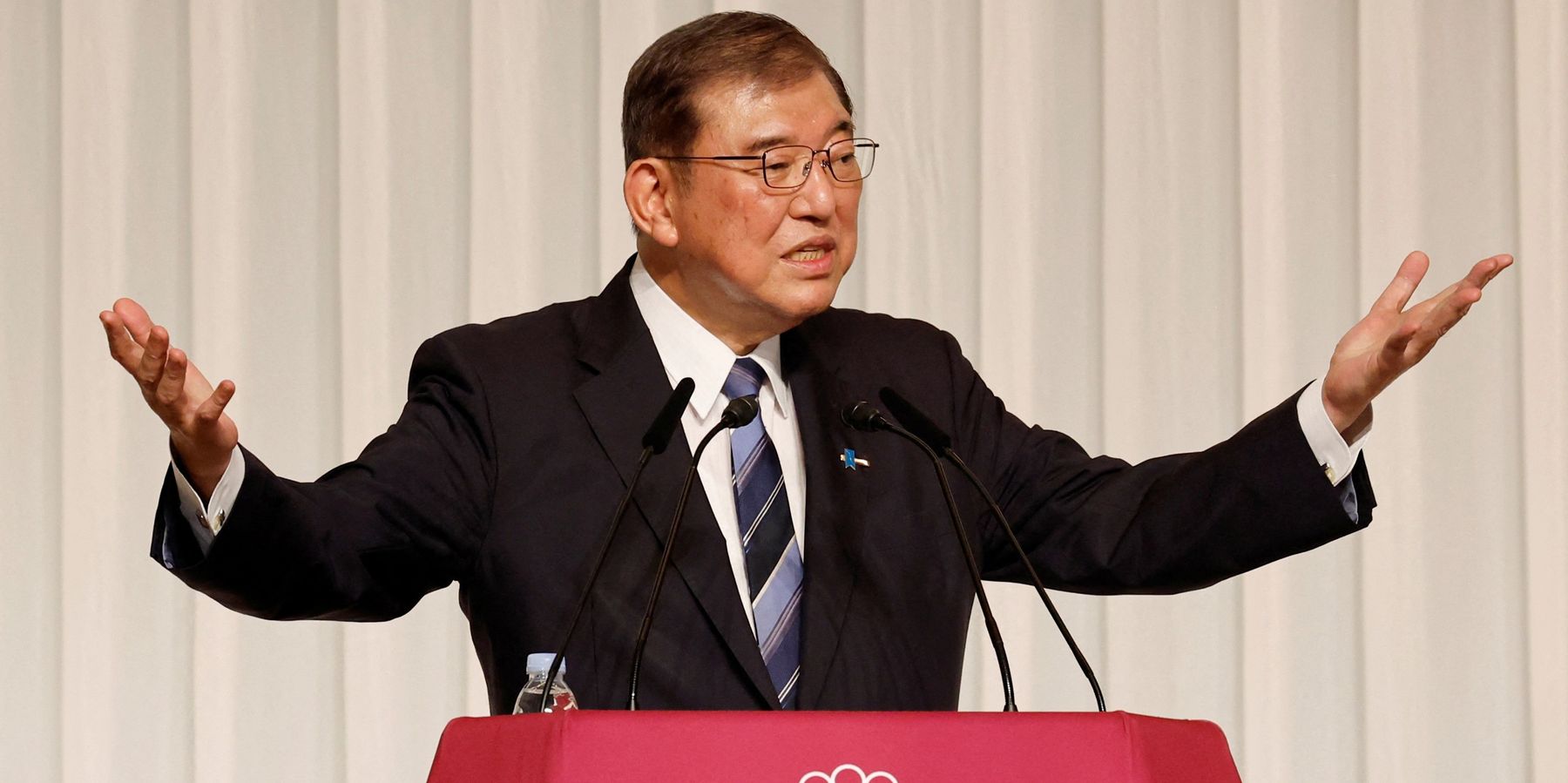Alliance minders in Washington and Tokyo are feeling some anxiety today. Shigeru Ishiba has won the contest for leadership of Japan’s Liberal Democratic Party (LDP), which means he will become Japan’s next prime minister, succeeding Kishida Fumio — probably Tuesday.
Ishiba, who is 67 and was first elected to the Diet in 1986, has vowed to shake up the 72-year-old security alliance between the United States and Japan, a bilateral alliance that in recent years has focused on maintaining U.S. primacy in East Asia and blocking China’s rise. He views it (correctly, I think) as “asymmetrical,” with Washington largely dictating Japanese foreign policy.
“I don’t think Japan is a truly independent nation yet,” Ishiba, the former defense minister, wrote in a book published just before the leadership race.
Some have called Ishiba a Gaullist; he certainly is a nationalist. In his fifth run for the top party position, he suggested that Japan share command and control over U.S. troops on Japanese soil, and even raised the possibility of stationing some Japanese soldiers on American territory (Guam).
Most controversial, though, has been his sweeping call for an “Asian NATO” that would include not just Japan but also South Korea and several Southeast Asian nations. This proposal, if adopted (and that’s unlikely anytime soon), would replace the hub-and-spokes pattern of bilateral and mini-lateral alliances that emerged after World War II and that are dominated by the United States.
The U.S. has about 85,000 troops stationed at military bases throughout East Asia, primarily in Japan and Korea. It also leads bilateral alliances with the Philippines, Thailand, Australia, and New Zealand. And it has been trying to draw India, which shares American hostility toward China, into its web by, for example, including it in the Quadrilateral Security Dialogue (Quad) with Japan and Australia.
Ishiba’s proposal for a multilateral security alliance in Asia has fostered strange bedfellows in opposition. Beijing repeatedly has condemned any NATO-like framework that would try to contain or confront China. But Washington, too, dislikes a proposal that could undermine its central position in Asian security networks. A Biden official, speaking anonymously, dismissed it as “fantasy,” while Daniel Kritenbrink, assistant secretary of state for East Asia, criticized it as hasty. “It’s too early,” he told a forum in Washington, “to talk about collective security in that context.”
In Tokyo, alliance minders are equally concerned but not panicking. Nishimura Rintaro, an associate at the Asia Group Japan, acknowledged that Ishiba wants to “fundamentally change” the U.S.-Japan security relationship. But he added: “I would venture to guess that that’s not going to happen."
Indeed, American and Japanese alliance minders have been here before. In 2009, the Democratic Party of Japan interrupted the long reign of the conservative LDP and installed a center-left prime minister. Yukio Hatoyama had campaigned on a platform that alarmed security officials and analysts in both Washington and Tokyo. For example, he called for “fraternal” cooperation with Japan’s Asian neighbors, including China, and pledged to reduce the U.S. military footprint in Okinawa, home to more than 30 American bases. After less than nine months in office, Hatoyama was forced to step down.
In a recent interview for a book, I asked the former prime minister why he was unable to shift Japanese foreign policy. He blamed the “Ampo Mura,” the small village of alliance insiders who enjoy influence by maintaining the trans-Pacific status quo. Hatoyama reserved his strongest criticism for Japanese bureaucrats in the defense and foreign affairs ministries, as well as their U.S. counterparts.
But Shigeru Ishiba is no Yukio Hatoyama. Although he wants to rebalance U.S.-Japan ties, and also favors greater engagement with Beijing, he is actually quite conservative and hawkish, even on China. He is a member of Nippon Kaigi, the ultra-nationalist group that believes Japan was not a villain in World War II; he favors greater defense spending; and he openly backs Taiwan. Ishiba riled Beijing in August by leading a group of lawmakers to Taipei, where he drew parallels between Russia’s invasion of Ukraine and security threats in the Taiwan Straits. He hinted that Japan should help deter any Chinese invasion.
China might have favored Ishiba in the LDP leadership contest — but only because the other candidates were even more hawkish. Beijing’s worst nightmare was Sanae Takaichi, the far-right pol who won the first round of voting but could not muster a majority.
It was surprising that Ishiba prevailed in round two. After years of criticizing other party leaders, especially former prime minister Shinzo Abe, he seemed unlikely to warm their hearts. But he is popular with LDP voters who have come to enjoy his maverick style, as well as his quirky hobby (he builds model trains, airplanes and ships). The party, dogged by tanking poll numbers in the wake of a funding scandal, must have figured Ishiba could help rescue the LDP brand before the next general election.
Now the alliance minders will have to get busy. Ishiba “could push the envelope” on the U.S.-Japan Security Alliance, write Nicholas Szechenyi and Yuko Nakano at the Center for Strategic and International Studies in Washington. But you can be sure that they and their powerful pals on both sides of the Pacific will push back. Very hard.
- What new leadership in Japan will mean for US, regional relations ›
- China hawks dominate pool for Japan’s next prime minister ›
- Election leaves Japan in a mess | Responsible Statecraft ›
















